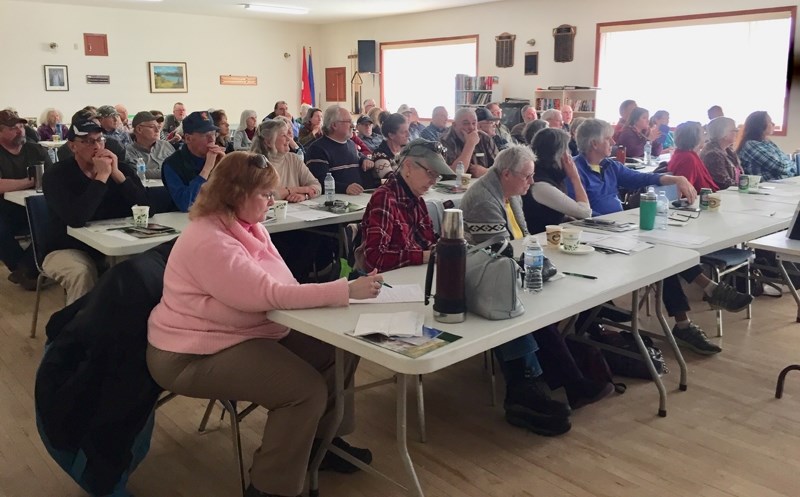About 70 area residents attended a one-day workshop on the challenges facing landowners and other property owners when dealing with predators such as bears, cougars, wolves and coyotes.
Held at the Gold and Silver Centre in Cremona on Feb. 22, the workshop was co-sponsored by Mountain View County and the MD of Bighorn.
Principal speakers at the education session included the following:
• Todd Ponich, regional problem wildlife specialist with Fish and Wildlife, spoke on a rancher's guide to predation and predator management.
• Jay Honeyman, human-wildlife conflict biologist, with Environment and Parks, spoke on large carnivore conflict and mitigation.
• Paul Fraser, with Mountain View BearSmart, spoke on bear safety, awareness and mitigation.
• Paul Merrill, rat and pest specialist, inspection/investigation section, with Alberta Agriculture and Forestry, spoke on coyote livestock predation.
"Our objective is to reduce predation, not reduce coyote numbers," said Merrill. "Coyotes are beneficial species. They eat gophers and other rodents."
Keys to reducing coyote predation include protecting young livestock, having healthy livestock, having good fences, and having guard dogs to watch over flocks, he said.
Calves are vulnerable for the first week of life, while lambs are always vulnerable to coyote predation, he said.
"The young are the vulnerable and that's the big one," he said.
Farmers should promptly remove food sources, such as cow or calf carcasses, from calving grounds, he said.
Teach coyotes respect by not letting them feel welcome on calving grounds, he said.
When it comes to coyote predation behaviour, killing is a learned process taught by parents and other adults, he said.
Coyote diet typically consists of 40 per cent rodents and rabbits, followed by carrion, ungulate young, birds, insects and fruit, he said.



